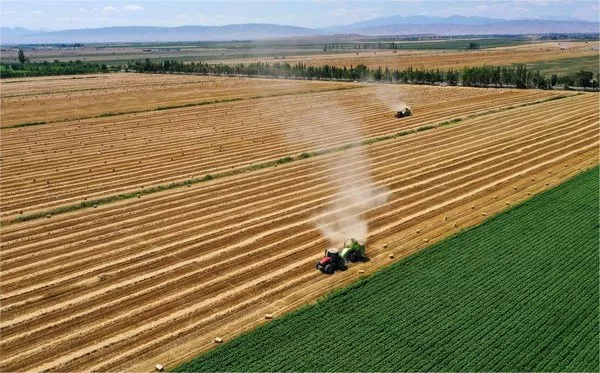The Malaysian government is initiating research into cultivated meat and alternative proteins to identify “sustainable alternatives to current crop production.” This effort involves a collaboration between the Malaysian Ministry of Higher Education, the Ministry of Science, Technology, and Innovation, and the National Institutes of Biotechnology Malaysia, focusing on feasibility studies through various universities.
The primary goal is to enhance the country’s food security and protect its agricultural sector from climate change effects. Research indicates that grain yields could drop by 10% with every 1°C rise in temperature once it surpasses 25°C. Malaysia’s recent average temperatures have been 27.5°C.
This initiative was decided in a recent cabinet committee meeting on the National Food Security Policy. Prime Minister Anwar Ibrahim emphasized the government’s commitment to developing the plant industry ecosystem, adapting technology, and exploring future foods like cultured meat and cell-based food.
Growing Policy Support for Alternative Proteins in Asia
In recent months, several South and Southeast Asian countries have increased policy and infrastructure support for cultivated meat. South Korea has established a regulatory framework and a special zone for startups in the sector, while India is developing a regulatory framework and partnering with a local startup to produce cultivated seafood. Thailand will soon have its first cultivated meat facility, thanks to a partnership involving Israel’s Aleph Farms. Singapore, a pioneer in this field, has recently opened its Food Tech Innovation Centre and granted a food license to fermentation contract manufacturer ScaleUp Bio.
Mirte Gosker, managing director of the Good Food Institute Asia-Pacific, noted that Malaysia is wisely assessing its role in the cellular agriculture value chain amid moves by other Asian countries to capitalize on this emerging sector.
A Strategic Move for Food Security and Innovation
Prime Minister Anwar’s Facebook post highlighted initiatives like modernizing agriculture through plant factories to strengthen the agricultural technology sector. He stressed the importance of thorough studies to ensure food quality and safety.
Gosker pointed out Malaysia’s longstanding interest in cultivated meat, referencing comments by YB Datuk Arthur Joseph Kurup, the deputy minister of science, technology, and innovation, at the country’s first cultivated meat conference last year. Kurup praised the novel food for its potential to create jobs, generate revenue, and address national challenges like food security, health management, and climate change.
Framework Development for Novel Foods
The cultivation of a local cultivated meat industry is central to Malaysia’s National Biotechnology Policy 2.0 for 2022-30. This policy aims to build an ecosystem for cultivated meat and fish using new technologies. Cell AgriTech, Malaysia’s first cultivated meat startup, outlined goals including developing university curricula, forming a cellular agriculture association, creating halal food standards for cultivated proteins, and establishing cell and seed repositories.
The programme also seeks to develop a supply chain for the cultivated meat and seafood industry, provide affordable contract research services, and establish a regulatory framework for novel foods. Current regulations under the Food Regulations 1985 do not adequately cover cultivated meat, which necessitates the development of specific regulations or the adaptation of existing ones to address the unique aspects of cellular agriculture.
Catalyzing the Food Tech Sector
In 2023, Cell AgriTech partnered with Singaporean cultivated seafood producer Umami Bioworks to build Malaysia’s first cultivated meat factory in Kedah, with an annual capacity of over 3,000 tonnes and an investment of RM20 million ($4.5 million). While the timeline for the government-backed study is not yet clear, the startups aim to start exporting products by 2025. Gosker is optimistic that this research will expedite approvals and support the growth of a robust ‘future foods’ sector in Malaysia.
Despite its nascent alternative protein industry, Malaysia has local innovators in plant-based, fermentation, and cultivated technologies driving domestic development. These include plant-based manufacturers Phuture and BaseFood, vegan brand Hoshay, biomass fermentation startup Ultimeat, and Starbucks Malaysia, which sources plant-based products from Indonesia’s Green Rebel.
Gosker noted Malaysia’s strength in manufacturing and food processing, suggesting that with appropriate government and industry support, the country could quickly scale up its alternative protein sector. The government’s focus on sustainability and innovation in the food sector could create a supportive environment for alternative proteins, promoting green technologies and sustainable agriculture.
Related Topics:


























